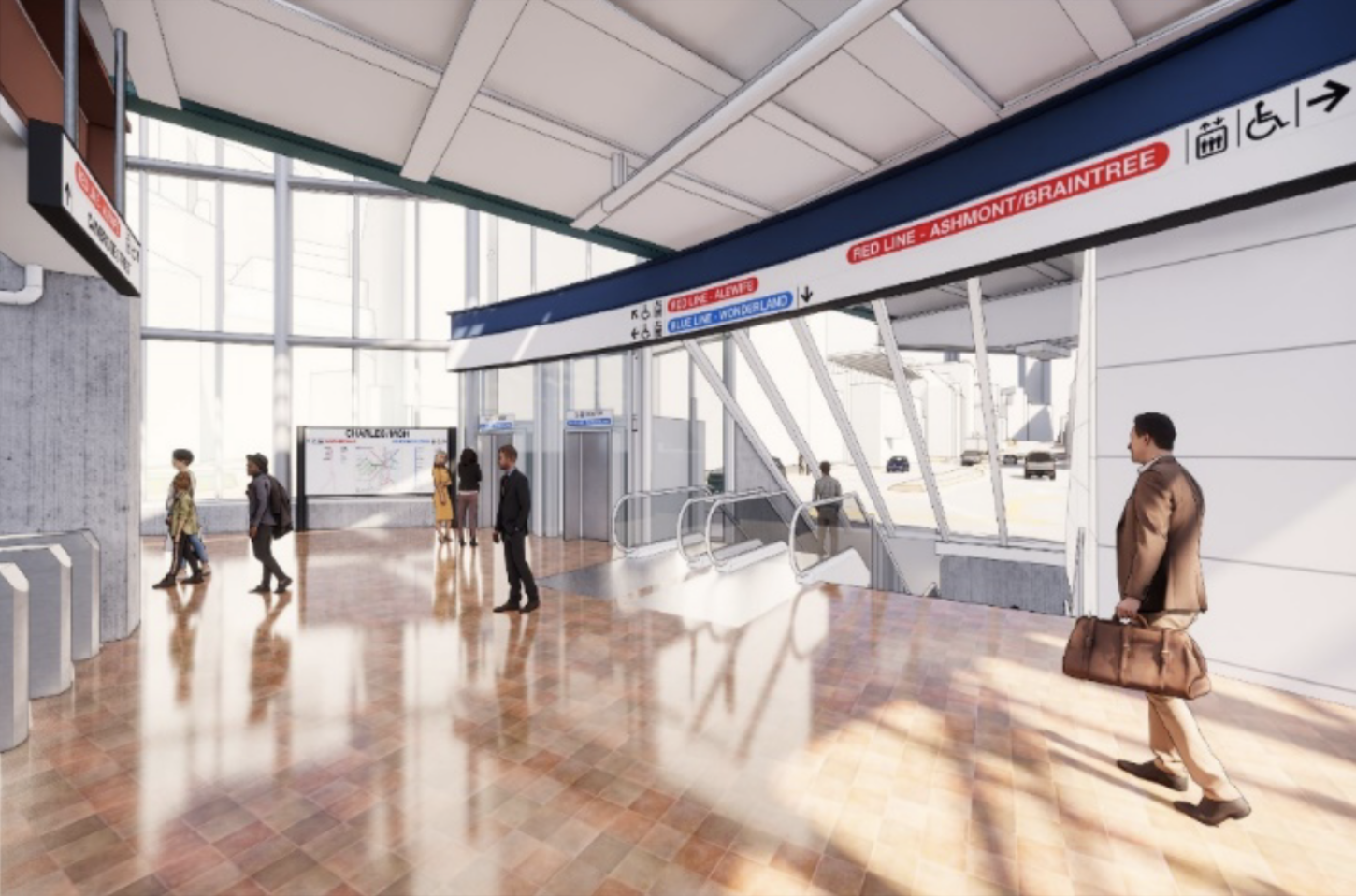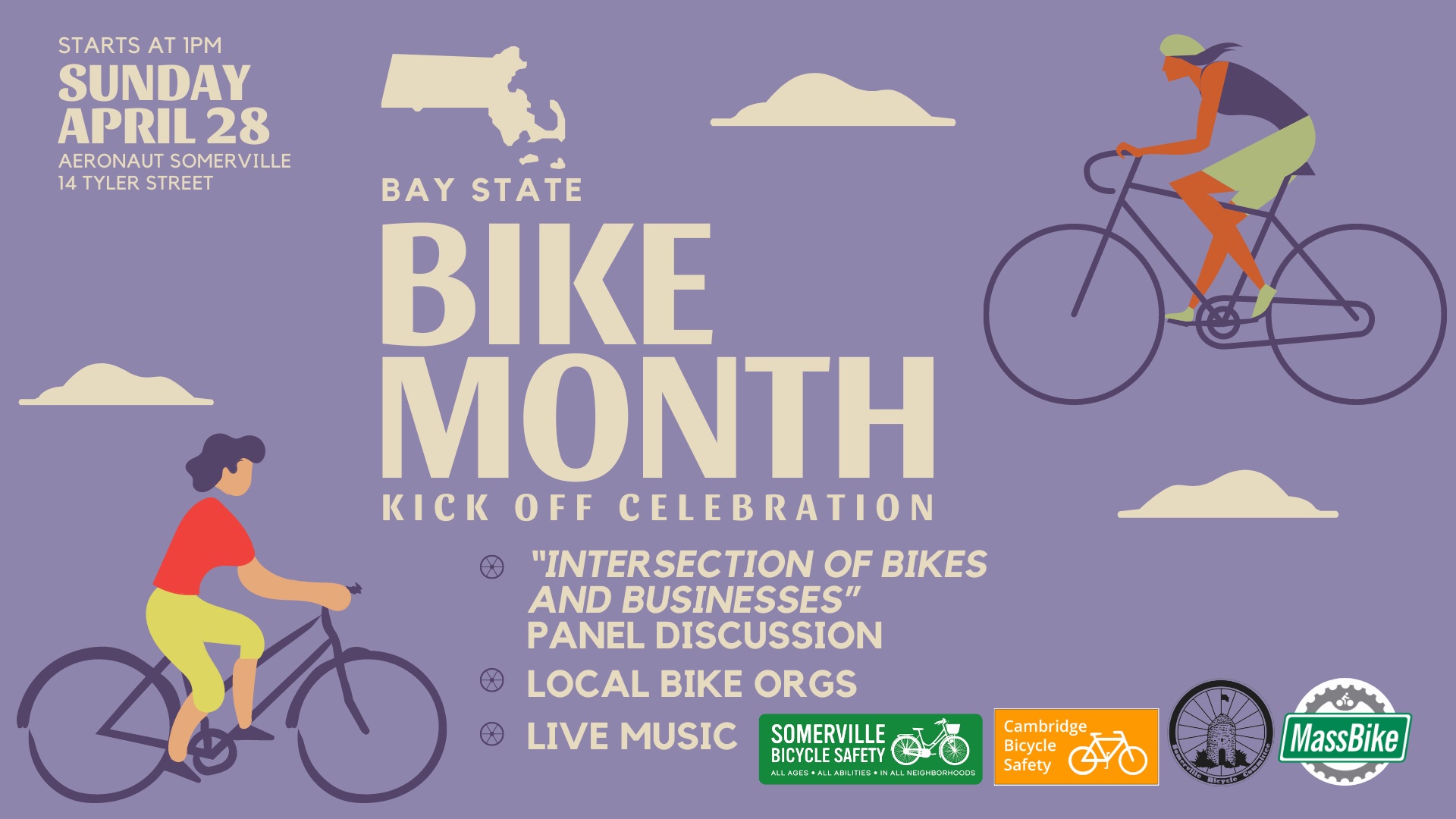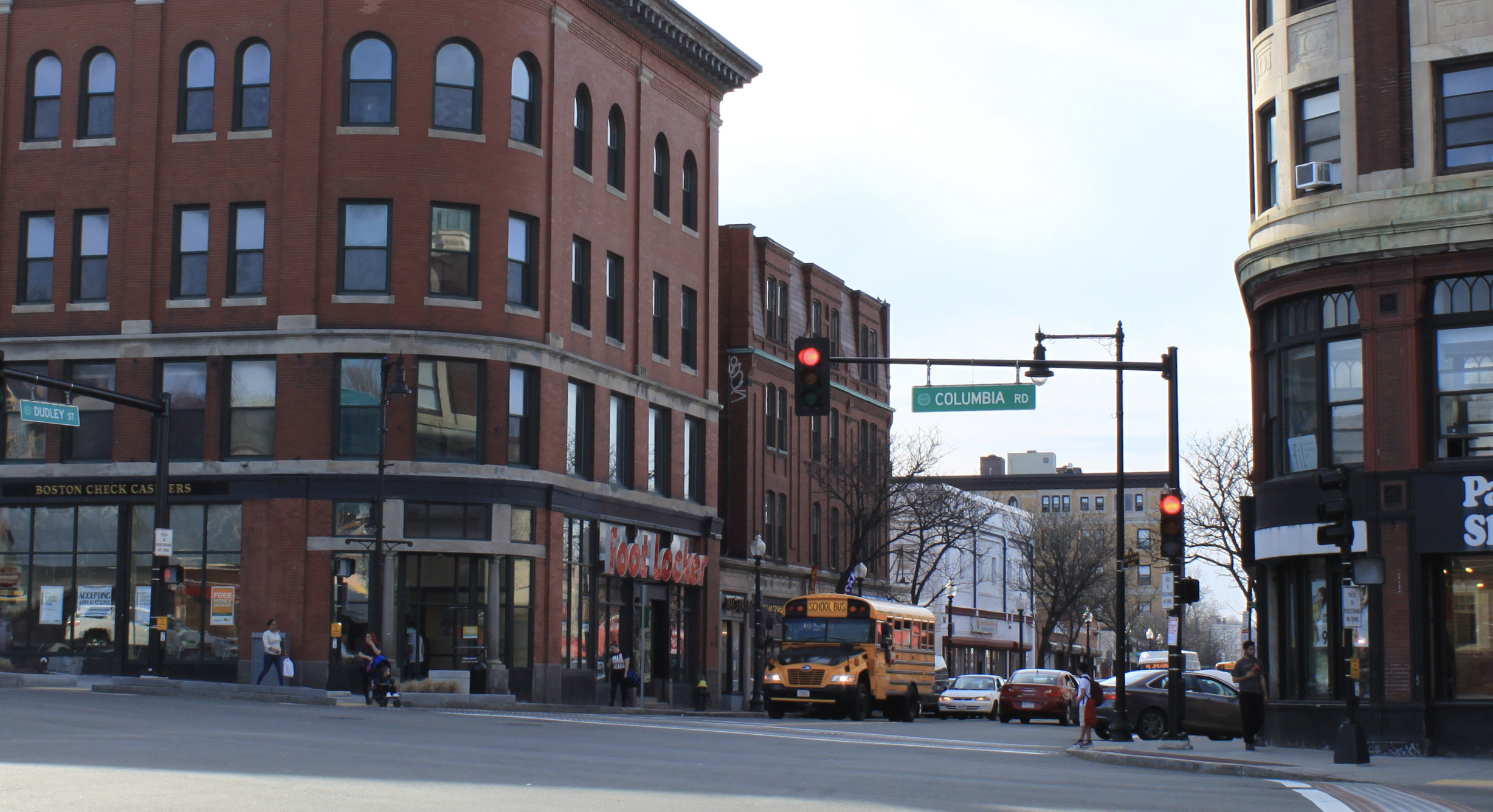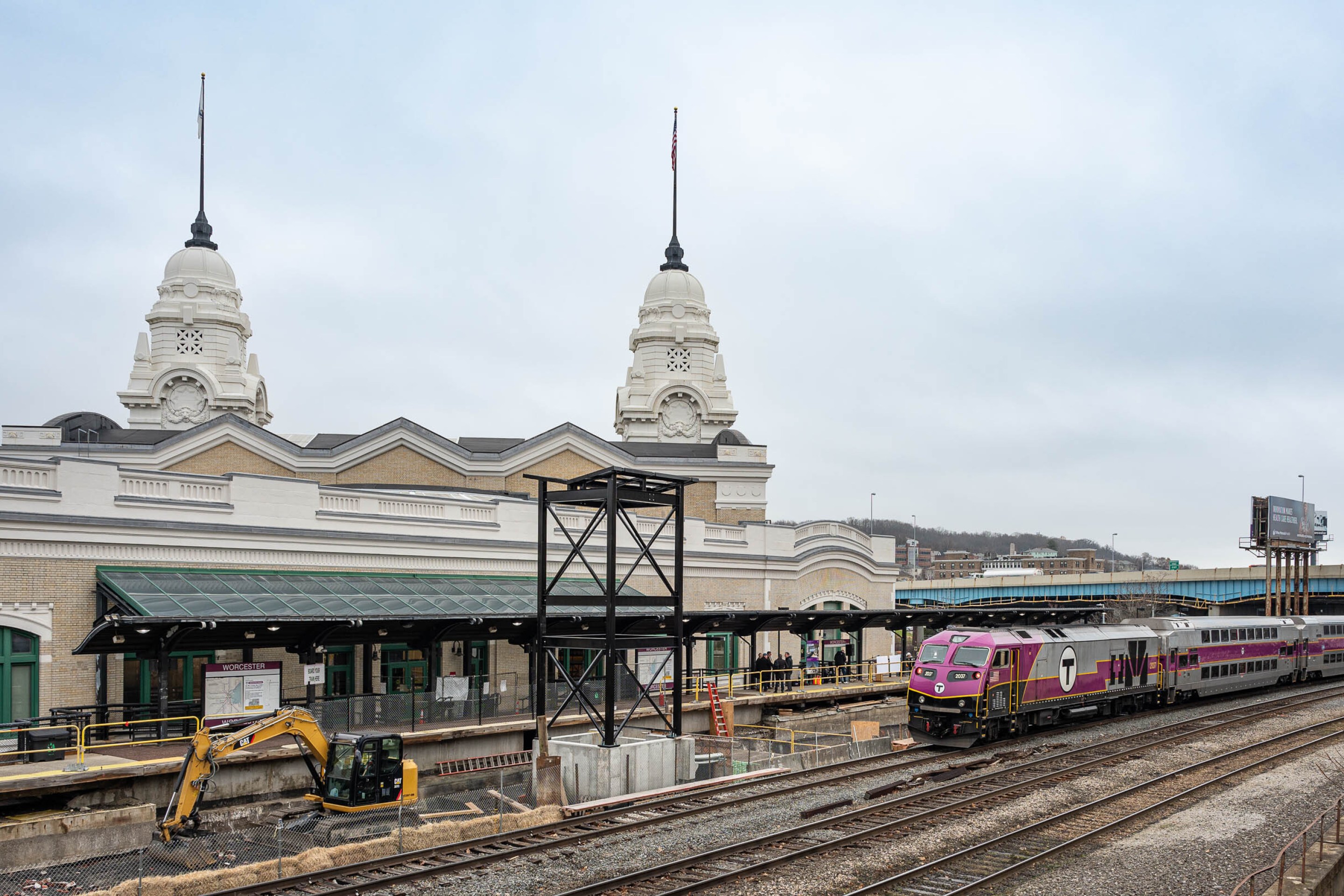A massive influx of federal funds (and the looming possibility of a major federal infrastructure bill) is shoring up budgets at the state's major transit agencies in spite of the past year's dip in ridership and fare collections, and opening up possibilities for funding major projects, like the electrification of the regional rail network and a new link between the Red and Blue lines in downtown Boston.
But by 2023, when pandemic relief funds are expected to run out, budget experts predict that the underlying budget challenges that existed at Massachusetts transit agencies before the pandemic will come back with a vengeance, unless the Legislature provides a sustainable source of revenue and transit agencies make bold moves to win back riders.
A new report from the Massachusetts Budget and Policy Center (MassBudget) takes stock of the Commonwealth's transportation relief funding - which adds up to about $3.3 billion from the three federal relief bills - and urges transit agencies "to help economic recovery by improving service and encouraging greater ridership."
"We could just shore up our old (pre-pandemic) budgets. Or we can do exciting things to add riders, and get people proud and excited about their transit systems," said Phineas Baxandall, the report's author, in a phone conversation with Streetsblog on Tuesday.
Baxandall notes that in addition to relief funding that goes directly to transit agencies, there's an additional $8.7 billion that will be available in "State and Local Fiscal Recovery Funds" which will provide $5.3 billion to the state government and $3.4 billion to municipalities.
That flexible funding, which is still largely unbudgeted, could let municipalities fast-track smaller transit and complete streets projects, including fare-free bus services, sidewalk and bus stop improvements, bike lanes, trails, or bikesharing systems.
The MassBudget report also notes that, when pandemic relief funds run out, Massachusetts transit agencies will again face the same structural budget deficits that challenged them before the pandemic began - unless the state legislature enacts a more sustainable source of funding.
In March 2019, just before the pandemic shut down the legislature and society in general, the Massachusetts House passed a major transportation funding bill that would have raised gas taxes, corporate taxes, and fees on Uber and Lyft to generate $500 million a year in new revenue to fund transit operations and the Commonwealth’s backlog of transportation projects. But amidst the emergencies of the pandemic, the Senate never took up the proposal.
Transit's budget challenges are closely linked to challenges the state faces from traffic congestion and the climate emergency, and in another new report from A Better City, a Boston-based business advocacy organization, argues that MassDOT and the MBTA need to use this year's federal funds to invest in "major, transformational projects" that will boost ridership and cut traffic for the long term.
“This is a critical time for Massachusetts to use federal dollars to achieve transformational change to our transportation system, reduce carbon emissions, and help the economy in this region," said A Better City President and CEO Rick Dimino in a press release accompanying the report.
The A Better City report warns that the MBTA was generally unprepared to advance major projects the last time Congress passed a major infrastructure stimulus bill, the 2009 American Recovery and Reinvestment Act. With that in mind, the report urges MassDOT and the MBTA to complete preliminary studies and environmental permitting work now so that it can win competitive federal grants for major projects, including east-west rail, the electrification of the regional rail network, the Red-Blue connector, new bus garages, and the Allston/I-90 project.
Joe Pesaturo, an MBTA spokesperson, says that the agency is already thinking along the same lines.
The T's most recent budget "aims to make targeted investments in the next round of transformation programs and establish a strong foundation for future funding opportunities," Pesaturo told Streetsblog in an email message. "Per the direction of the Fiscal Management and Control Board, the FY22 (budget) includes $30 million in a new "Near-Term Transformation Investments Fund" ... to support near-term, capital opportunities that arise during the fiscal year, and could support additional targeted investments in advance of potential future federal funding."
Pesaturo added that some of the projects that might benefit from these funds include new bus garages (in addition to the new Quincy garage, which is now fully funded and could go under construction later this year), infrastructure to support battery-powered buses, a new south side commuter rail maintenance facility, and additional station upgrades in the Green Line Transformation program.





